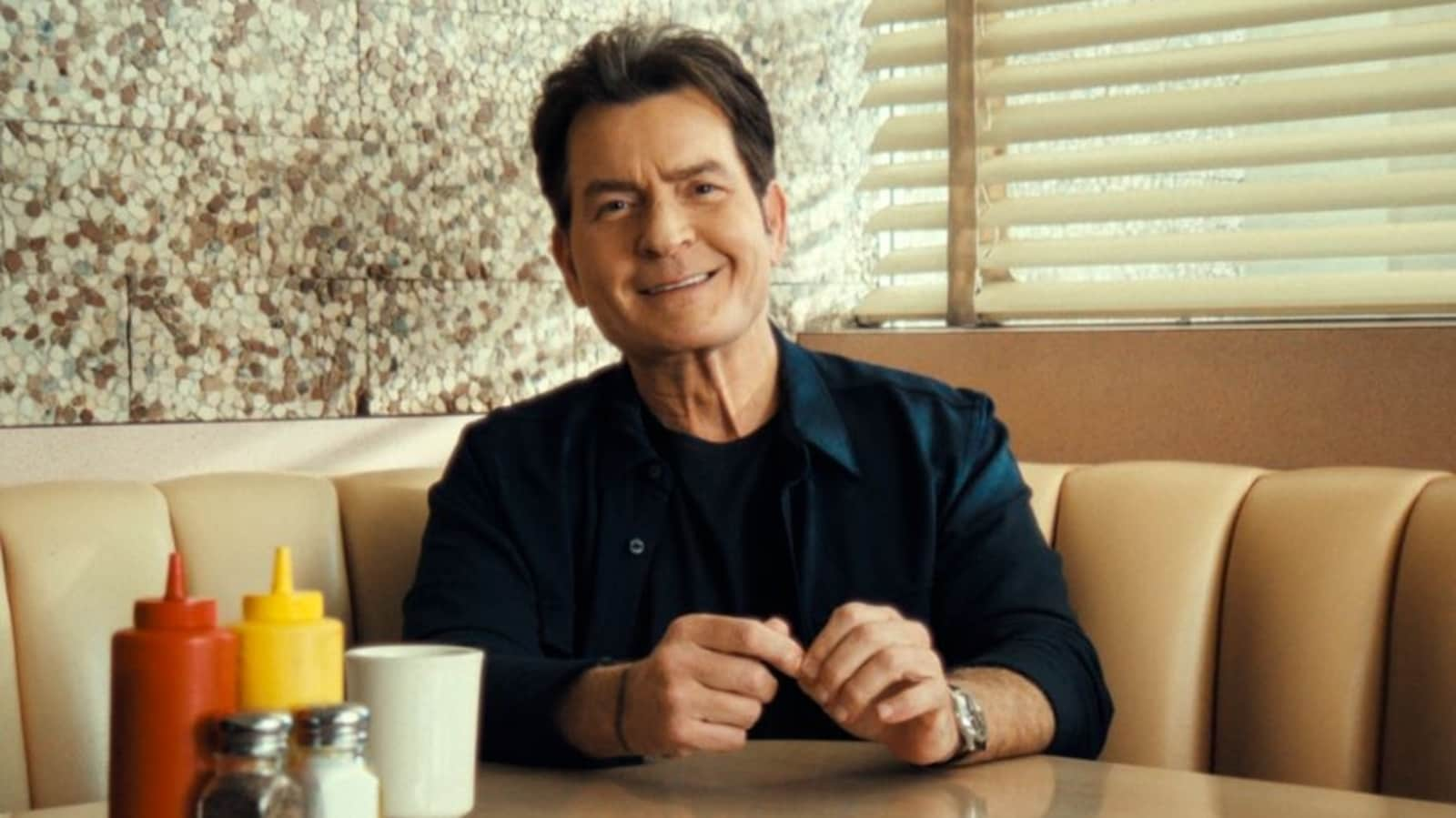Directed by: Andrew Renzi
Cast: Charlie Sheen, Chuck Lorre, Denise Richards, Brooke Mueller and Jon Cryer
Rating: ★★.5
Netflix’s two-part, three-hour documentary aka Charlie Sheen takes a deep dive into the life of the actor, tracing decades of fame, scandal, and hard-won sobriety. Directed by Andrew Renzi, the series features an array of voices from Charlie’s world: ex-wives Denise Richards and Brooke Mueller, longtime friends like Sean Penn, collaborators such as Jon Cryer and Chuck Lorre, and even controversial Hollywood madam Heidi Fleiss. Absent, however, are Martin Sheen and Emilio Estevez, whose refusal to participate is noted but never fully addressed.

From the very beginning, it’s clear that this is a portrait of cycles — triumph and self-destruction, recklessness and reflection. Charlie, now seven years sober, narrates much of his story himself, yet the film leaves audiences wondering: is this a sincere reckoning or another performance in a life built on reinvention?
Filmed mostly in a Los Angeles diner, Charlie guides viewers through the three phases of his adult life — “Partying, Partying with problems, and Just problems.” The documentary blends Charlie’s interviews with archival footage, TV and film clips, and home videos from his childhood with the Estevez brothers. Friends and ex-partners fill in the gaps, offering insight, criticism, and occasional levity.
The doc covers Sheen’s early career highs, public meltdowns, infamous media moments, and personal revelations, including his HIV status. While Charlie approaches these subjects with more introspection than his 2011 media tour, some sensitive topics are skirted or discussed obliquely, leaving the audience craving deeper exploration.
The good
Charlie’s charisma and storytelling remain undeniable. His anecdotes about childhood, career, and early fame are engaging, offering glimpses of the actor beneath the tabloid headlines. Archival materials, including home movies and clips from Charlie’s projects, create an intimate, sometimes nostalgic perspective, grounding the documentary in personal history.
The supporting cast elevates the project. Jon Cryer provides sharp, reflective commentary on Charlie’s destructive patterns, while Denise Richards brings honesty and clarity, ensuring the story avoids becoming purely a vanity project. Tony Todd’s emotional reflections on Charlie’s most dangerous years lend a surprising depth, reminding viewers of the stakes beyond Hollywood spectacle.
Andrew’s editing — blending interviews with past footage — cleverly illustrates how Sheen’s public persona often mirrored his real-life chaos, highlighting the blurred line between actor and legend.
The bad
Despite unprecedented access, the documentary occasionally avoids accountability. Serious allegations — domestic violence, exposure to HIV, and substance-fueled recklessness — are addressed superficially. Andrew seems more invested in Charlie telling his story than in rigorous follow-up questioning, leaving key issues unresolved.
The pacing drags in parts, especially when Charlie recounts repeated cycles of drug use and sexual exploits. This repetition risks exhausting viewers and diminishes focus on his professional achievements. Certain chapters of his career, such as his Anger Management series or collaborations with Chuck Lorre, receive minimal attention, giving the doc a skewed sense of priorities.
Crucially, the series leaves a lingering question: is Charlie genuinely confronting his past, or performing a controlled version of it for the cameras? The ambiguity adds intrigue but can frustrate viewers seeking clarity.
The verdict
aka Charlie Sheen is as magnetic and messy as its subject. It captures moments of honesty and humor while navigating decades of public and private chaos. Yet it also glosses over accountability, leaving gaps in the narrative that prevent it from being a fully rounded portrait. Fans of Charlie will find it entertaining and insightful, while skeptics may see it as another iteration of the persona they’ve watched unfold in tabloid headlines.
Ultimately, the documentary mirrors Charlie’s life: unpredictable, captivating, occasionally infuriating, and impossible to look away from.












